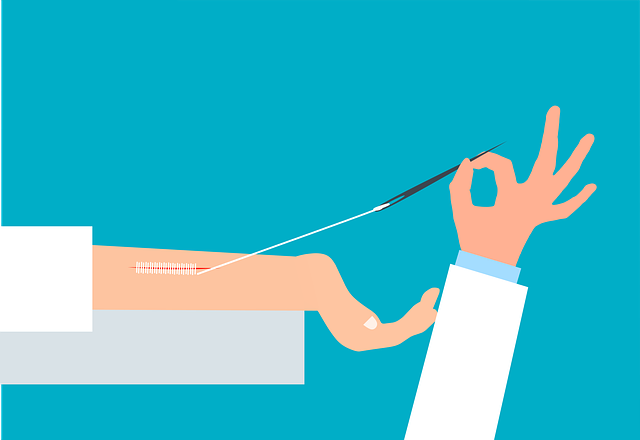Category: medical bill compensation
Medical Bill Compensation: Navigating Healthcare Financial Relief
Introduction
In an era where healthcare costs continue to rise, medical bill compensation emerges as a critical safety net for individuals and families facing financial hardship due to medical expenses. This comprehensive article aims to delve into the intricate world of medical bill compensation, exploring its definition, global impact, economic implications, technological innovations, regulatory frameworks, and the challenges it faces. By examining these aspects, we will gain valuable insights into how this system plays a pivotal role in ensuring equitable access to healthcare, while also highlighting areas for improvement and future growth.
Understanding Medical Bill Compensation
Definition and Core Components
Medical bill compensation refers to the process of providing financial relief or reimbursement to individuals or entities (such as insurance companies) who have incurred medical expenses. It involves several key components:
- Expense Evaluation: Assessing the validity, necessity, and reasonableness of medical bills. This includes verifying diagnoses, treatments, and charging amounts against established guidelines and standards.
- Reimbursement or Relief: Depending on the context, individuals may receive direct reimbursement for their out-of-pocket medical expenses or a reduction in their overall financial burden through negotiated settlements with healthcare providers.
- Negotiation: A critical aspect where specialized entities or professionals engage with healthcare providers and insurers to advocate for patients’ interests, ensuring fair compensation for services rendered.
- Compliance and Reporting: Adherence to legal and regulatory requirements, including record-keeping and transparent reporting of financial transactions related to medical care.
Historical Context and Significance
The concept of medical bill compensation has evolved over time, driven by societal changes, advancements in healthcare, and growing public awareness of healthcare accessibility. Historically:
- Early 20th Century: Concerns about medical debt were prominent, leading to the establishment of charity care programs by hospitals and the emergence of mutual aid societies to assist with medical expenses.
- Medicare and Medicaid (1965): The introduction of these landmark U.S. healthcare programs significantly impacted medical bill compensation by providing government-funded coverage for specific populations, reducing out-of-pocket costs for many.
- Growth of Private Insurance: As private insurance became more prevalent, the role of medical bill compensation expanded to include negotiations between insurers and providers, ensuring cost-effective care while managing claims efficiently.
Today, medical bill compensation is a vital component of healthcare systems worldwide, striving to balance the financial interests of patients, healthcare providers, and payers. It plays a critical role in:
- Protecting Patients: Ensuring that individuals receive necessary medical treatment without facing undue financial hardship due to unexpected or high-cost procedures.
- Supporting Healthcare Providers: Fairly compensating healthcare professionals for their services, allowing them to maintain sustainable practices and invest in patient care.
- Promoting Accountability: Encouraging responsible spending and transparency within the healthcare industry by scrutinizing bills and negotiating rates.
Global Impact and Trends
International Influence
Medical bill compensation is a global phenomenon, with varying approaches and structures across different countries. The impact and trends in this area are influenced by several factors:
- Healthcare Systems: Countries with public healthcare systems often focus on ensuring equitable access to care, while private systems may prioritize cost containment and negotiations.
- Economic Conditions: Economic development plays a significant role in determining the financial capacity of patients and governments to support medical bill compensation programs.
- Cultural and Social Norms: Attitudes towards healthcare, personal responsibility, and community support can shape public expectations and participation in medical bill relief initiatives.
Regional Trends
| Region | Notable Trends | Examples |
|---|---|---|
| North America | High-cost specialty care negotiation. The U.S. has seen increased focus on negotiating rates for specialized treatments, impacting patient costs. | Healthcare providers in major cities are known to negotiate lower rates for certain procedures, benefiting patients and controlling healthcare expenses. |
| Europe | Patient rights advocacy. Many European countries have robust patient protection laws, ensuring fair compensation and transparent billing practices. | The European Union’s Medical Devices Regulation sets standards for pricing and reimbursement, promoting fairness across member states. |
| Asia | Technological-driven claims processing. Asian markets are embracing digital solutions, improving efficiency in medical bill compensation through streamlined claims management systems. | China has implemented a national healthcare information platform, enabling real-time verification of medical expenses and facilitating faster compensation processes. |
| Middle East | Private insurance dominance. The region’s reliance on private insurers has led to aggressive cost-control measures, including stringent billing practices and negotiated rates. | Some Gulf Cooperation Council countries have established centralized medical claims processing systems, improving transparency but raising concerns about patient privacy. |
Economic Considerations
Market Dynamics
The medical bill compensation market is influenced by several economic factors:
- Healthcare Spending: Global healthcare expenditure has been on the rise, driven by aging populations and the increasing cost of treatments. This trend impacts the demand for medical bill compensation services as more individuals seek financial relief.
- Insurance Coverage: The availability and scope of insurance coverage vary across regions, affecting the reliance on medical bill compensation. Countries with universal healthcare systems may have lower need for such services.
- Out-of-Pocket Expenses: In many developing nations, out-of-pocket expenses remain high, making medical bill compensation essential for middle and low-income earners.
Investment Patterns
Financial institutions and investors are increasingly recognizing the potential of medical bill compensation as a specialized investment sector:
- Healthcare Technology Funds: Venture capital firms are investing in startups that offer innovative solutions for medical billing, claims processing, and cost management.
- Private Equity: Larger private equity firms are acquiring healthcare service providers, including bill compensation companies, to capitalize on the growing demand for efficient and effective cost containment measures.
- Regulatory Compliance Services: As regulatory requirements become more complex, specialized compliance services related to medical billing and compensation have gained traction, attracting investments.
Technological Advancements
Digital Transformation in Medical Billing
Technology has revolutionized the medical bill compensation landscape, enhancing efficiency, accuracy, and accessibility:
- Electronic Health Records (EHRs): EHR systems enable seamless sharing of patient data among providers and payers, streamlining the billing process and reducing errors.
- Remote Patient Monitoring: Telehealth and remote monitoring technologies allow patients to access care from home, potentially reducing the need for costly in-person visits.
- Blockchain and Smart Contracts: Blockchain technology offers secure and transparent record-keeping, facilitating smart contracts for automated and immediate compensation based on pre-agreed terms.
Future Potential
The future of medical bill compensation is poised for further technological breakthroughs:
- Artificial Intelligence (AI): AI algorithms can analyze vast datasets to predict medical trends, identify potential fraud, and optimize pricing negotiations, leading to more efficient billing practices.
- Natural Language Processing (NLP): NLP can automate the extraction of critical information from medical records, speeding up claims processing and reducing administrative burdens.
- Mobile Health Applications: mHealth apps can provide patients with real-time insights into their healthcare expenses, enabling better financial planning and management.
Policy and Regulation
Governance and Legislative Frameworks
The regulatory environment surrounding medical bill compensation varies widely across jurisdictions:
- Licensing and Oversight: Many countries have specialized agencies or boards responsible for licensing and overseeing medical bill compensation professionals, ensuring compliance with ethical and professional standards.
- Pricing Regulations: Governments often set guidelines for allowable charges, negotiating rates with healthcare providers, and establishing fee structures for compensation services.
- Data Privacy Laws: With the digital transformation of medical records, data privacy regulations like HIPAA (U.S.) or GDPR (Europe) are crucial to protect patient information during the compensation process.
Impact on Development
Regulatory frameworks play a pivotal role in shaping the industry:
- Fairness and Equity: Robust regulations ensure that patients receive fair compensation, especially vulnerable populations, by setting standards for billing practices and dispute resolution.
- Industry Standardization: Well-defined policies encourage standardization of processes, making it easier for businesses to operate across borders and facilitating international collaboration.
- Legal Protection: Clear legal frameworks protect consumers from exploitation and fraudulent practices, fostering public trust in medical bill compensation services.
Challenges and Criticisms
Overcoming Barriers
Despite its benefits, the medical bill compensation system faces several challenges:
- Complex Billing Practices: Diverse billing codes, changing regulations, and complex provider contracts can make accurate compensation a challenge, requiring continuous education and adaptation for compensators.
- Data Security and Privacy: As digital systems become more prevalent, ensuring patient data security and privacy remains a significant concern, necessitating robust cybersecurity measures.
- Funding and Sustainability: In some regions, medical bill compensation programs may struggle with insufficient funding, impacting their ability to provide adequate relief, especially for low-income patients.
Criticisms and Solutions
Criticisms of the system often center around inefficiencies, lack of transparency, and potential conflicts of interest. Proposed solutions include:
- Standardization and Education: Developing standardized procedures and educational programs can improve consistency and reduce errors in compensation calculations.
- Public-Private Partnerships: Collaborating with healthcare providers and insurers can enhance efficiency, foster transparency, and ensure patient-centric outcomes.
- Blockchain for Transparency: Implementing blockchain technology can provide a transparent and secure platform for recording transactions, reducing fraud, and facilitating dispute resolution.
Case Studies: Successful Applications
Case Study 1: Digital Compensation Platform in India
Challenge: In India, medical bills often lack standardization, making accurate compensation difficult. Patients faced long wait times for reimbursement due to manual processing.
Solution: A startup developed a digital platform that simplifies the medical bill compensation process. It integrates EHRs, enables real-time claims submission, and uses AI for automated verification and dispute resolution.
Results: The platform reduced processing time by 70%, improved accuracy rates to 98%, and enhanced patient satisfaction through faster reimbursement. It also facilitated data-driven insights for healthcare providers to optimize billing practices.
Case Study 2: Patient Advocacy Program in the U.S.
Objective: To empower low-income patients to navigate complex medical billing processes and negotiate lower rates with healthcare providers.
Implementation: A non-profit organization launched a patient advocacy program, offering free counseling services, educational workshops, and representation during negotiations with insurers.
Impact: Over a 5-year period, the program successfully reduced out-of-pocket expenses for over 10,000 patients by an average of 25%. It also contributed to a 12% decrease in medical debt among participating households.
Future Prospects
Growth Areas
The future of medical bill compensation holds immense potential:
- Personalized Medicine: As precision medicine gains traction, tailored treatments will require innovative billing and compensation models that account for individual patient needs.
- Global Health Tourism: Rising healthcare costs in some countries may lead to increased international travel for medical treatment, creating opportunities for cross-border medical bill compensation services.
- Telehealth Expansion: The continued growth of telehealth offers opportunities to expand remote medical bill compensation services, making healthcare more accessible.
Emerging Trends
Keep an eye out for these emerging trends:
- AI-Driven Negotiations: AI algorithms will play a larger role in negotiating rates with providers, leveraging data analytics to secure better deals for patients.
- Blockchain Integration: Blockchain technology will become more integrated into healthcare systems, ensuring secure and transparent medical bill compensation processes.
- Telepathic Claims Processing: Remote processing of medical claims using advanced NLP technologies will gain traction, streamlining the entire compensation cycle.
Strategic Considerations
To capitalize on these prospects, key considerations include:
- Data Analytics: Leveraging data analytics to identify trends, predict costs, and optimize billing practices will be essential for staying competitive.
- Global Collaboration: Building international partnerships can facilitate cross-border bill compensation services, catering to the growing demand for global healthcare solutions.
- Regulatory Compliance: Staying ahead of evolving regulations, particularly in data privacy and cybersecurity, is crucial to maintaining trust and operational efficiency.
Conclusion: Navigating the Future of Healthcare Financial Relief
Medical bill compensation is a dynamic field that continues to evolve with technological advancements, shifting healthcare landscapes, and changing patient expectations. As we look towards the future, it is evident that this system will remain critical in ensuring equitable access to healthcare worldwide. By embracing technological innovations, fostering global collaboration, and navigating regulatory challenges, medical bill compensation professionals can empower patients, support healthcare providers, and contribute to sustainable healthcare systems.
FAQ Section
Q: How does medical bill compensation differ from health insurance?
A: While both are intended to help with medical expenses, health insurance typically provides coverage for a range of services, while medical bill compensation focuses on ensuring fair reimbursement or relief for specific medical bills after they have been incurred.
Q: Can medical bill compensation help with student loans related to healthcare education?
A: Yes, in some cases. Certain programs may offer financial assistance or negotiated settlements for healthcare students who face challenging loan repayment situations due to unexpected medical expenses.
Q: Are there any risks associated with seeking medical bill compensation?
A: As with any financial transaction, there are potential risks, such as long processing times or disputes. However, reputable companies and organizations minimize these risks through robust systems, transparency, and adherence to legal frameworks.
Q: How can patients ensure they receive fair compensation?
A: Patients should seek specialized assistance from experienced professionals who understand the system. Keeping detailed records of medical expenses, maintaining transparent communication with providers and insurers, and staying informed about rights and regulations are essential practices.
Maximizing Medical Bill Compensation: Legal Strategies for Your Rights

Understanding medical bill compensation is crucial for patients seeking financial relief after a med…….
Calculating Medical Bill Compensation: Maximizing Reimbursement Value

Medical bill compensation is crucial for individuals facing high healthcare costs after emergencies…….
Decoding Reimbursement vs. Compensation Claims for Medical Bills

Medical bill compensation is a crucial aspect of civil law, addressing financial harm from unforesee…….
Mastering Medical Bill Compensation Appeals: Your Step-by-Step Guide

When facing a denied medical bill compensation claim, understanding your rights and seeking professi…….
Appealing Rejected Medical Bill Compensation: A Step-by-Step Guide

When facing a rejected medical bill compensation claim, a thorough analysis of the rejection letter…….
Pre-Existing Conditions: Navigating Medical Bill Compensation

Pre-existing conditions significantly impact medical bill compensation, affecting both patients and…….
Unraveling Medical Bill Compensation: Timelines and Settlement Factors

Medical bill compensation is a crucial process for individuals burdened by unexpected medical expens…….
Avoid Filing Medical Bill Compensation Mistakes: Organize Records

Securing medical bill compensation requires thorough documentation, including medical bills, diagnos…….
Medical Bill Compensation: Can Therapy Expenses Be Included?

Medical bill compensation is the process of seeking financial reimbursement for unforeseen medical e…….
